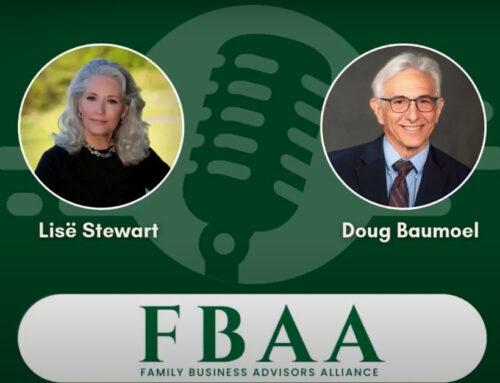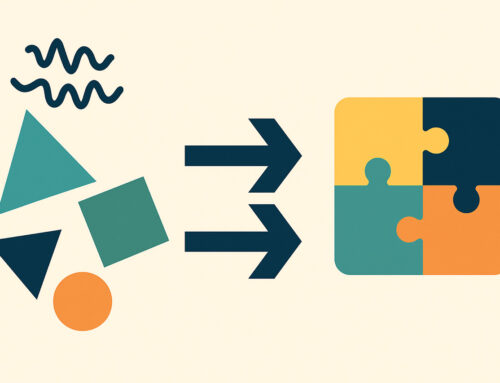Dispute Mediation vs. Conflict Management
What’s the difference?
Estimated read time: 5-6 mins
Conflict is inevitable in any family enterprise. But when tensions arise, the way families approach conflict can make the difference between destructive outcomes and transformational growth. Too often, families and their advisors assume that dispute resolution approaches, such as mediation, are the natural path forward. But in our work with enterprising families, however, we’ve found that mediating simple disputes and managing the kind of conflict that happens in family enterprise are two very different things. Understanding the distinction is critical.
At Continuity, we specialize in helping enterprising families manage systemic, identity-based conflict. This is the kind of conflict that arises when family members who share important continuing relationships must make decisions together, yet are not aligned or in disagreement about crucial issues involving shared assets, businesses, or wealth—issues that can be self-defining for stakeholders. Drawing on decades of experience and the framework outlined in our book, Deconstructing Conflict, let’s explore why mediation often falls short and why a more systemic conflict management approach is the more effective strategy for families seeking lasting success.
The Limits of Mediation in Family Enterprises
Mediation is designed to resolve disputes. These are specific, isolated disagreements between parties. A trained neutral party (the mediator) facilitates a process where the goal is resolution: to reach an agreement that ends the dispute. This process can work well in civil or commercial disputes where the parties have no ongoing relationship and can simply walk away once a deal is struck.
But family enterprise conflicts are rarely so simple. They are not just disputes about money, titles, or ownership. They are deeply systemic conflicts, embedded in overlapping family, business, and ownership systems, and rooted in challenges to stakeholder identity and their perceived place in the world. As Deconstructing Conflict explains:
“Because family dynamics combine with management, ownership, and economic interests, the resulting mix can prove exponentially more complex … family business conflict is distinct from common civil disputes and does not typically respond to the same dispute resolution approaches.”
Moreover, attempting to resolve systemic, identity-based conflict “dispute by dispute” will likely end up making matters worse. Like the arcade game, Whack-a-mole, unless differences are approached systemically, rather than as an isolated dispute, conflicts will pop-up elsewhere in the system.
Conflict Management: A Systems Approach
Conflict management, by contrast, is not about resolution. It’s about understanding and managing the complex web of relationships, histories, and structures that make up the family enterprise system. Our goal as conflict experts is to help families prevent, manage, and heal from conflict.
At Continuity, we use a systems-thinking approach grounded in our proprietary methodology, The Conflict Equation™, that enables families to:
- Break down the conflict into its underlying components (i.e. opposing goals, incompatible values, or historical impasses)
- Identify how power is held and used within the system, ensuring that it is exercised in a way that does not trigger active conflict
- Strengthen the “Family Factor”, which is a measure of the how well the family bond can leverage compromise, forgiveness and a commitment to change
Unlike mediation, conflict management is not a one-time intervention. It’s a process designed to equip families with the tools, insights, and governance structures they need to prevent conflict from escalating; at the same time, it helps them grow their enterprise and relationships out of conflict.
When Continuing Relationships Matter
One of the defining characteristics of family enterprise conflict is the importance of continuing relationships. Family members cannot simply compromise and walk away; they must remain “family” after the conflict. As we often remind our clients:
“Family relationships are lifelong. Even when family members abandon each other due to unresolved conflict and vow never to communicate again, the structural family bond still exists.” (Deconstructing Conflict)
That’s why a conflict management approach is so essential. It considers both the substantive issues (i.e. business, wealth, and roles) and the emotional and relational issues, simultaneously. It helps families make decisions that preserve their relationships while safeguarding the enterprise that connects them.
The Case for Proactive Conflict Management
Enterprising families often seek mediation when conflict has already escalated. By then, positions have hardened, trust has eroded, and the likelihood of a successfully mediated outcome is slim. Proactive conflict management, on the other hand, allows families to address tensions early, build alignment, and put structures in place to prevent disputes from becoming destructive.
The goal is not to eliminate differences entirely. Differences are a natural and even unavoidable part of family enterprise life. Well-managed conflict can lead to new approaches, innovative strategies, and resilience. It can lead to useful ideas about sharing power, stronger relationships, productive conversation, and better decision-making.
Choosing the Right Approach
If your family enterprise is facing challenges, ask yourself: Are we dealing with a discrete dispute or a systemic conflict? Do the issues involve strongly held beliefs that individual stakeholders may have regarding who they are and their rightful place in the world (i.e. identity)? Will a one-time resolution process be sufficient to manage conflict over time? Are we willing to invest in building the trust, process, and structures needed for generational success and harmony?
When relationships must continue, as is always desirable in family enterprise, conflict management is not just the better alternative to mediation. It is the only option that can lead to sustainable, long-term outcomes for both the family and the enterprise when conflict occurs.
At Continuity, we specialize in helping families navigate this complexity. Through our comprehensive approach, we enable families to manage conflict constructively, strengthen relationships, and thrive together across generations.
Stay in the Know
Get our latest articles, tips, and insights delivered straight to your inbox.
Share this Insight, choose your platform!
About Us
Continuity Family Business Consulting is a leading advisory firm for enterprising families. Using a full suite of service capabilities, we help families prevent and manage the single greatest threat to family and business continuity: conflict. It is through this lens that we advise our clients and build customized strategies for succession planning, corporate governance, family governance, and more. We help families improve decision making, maximize potential and achieve continuity. To inquire, contact us.











